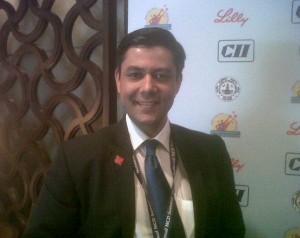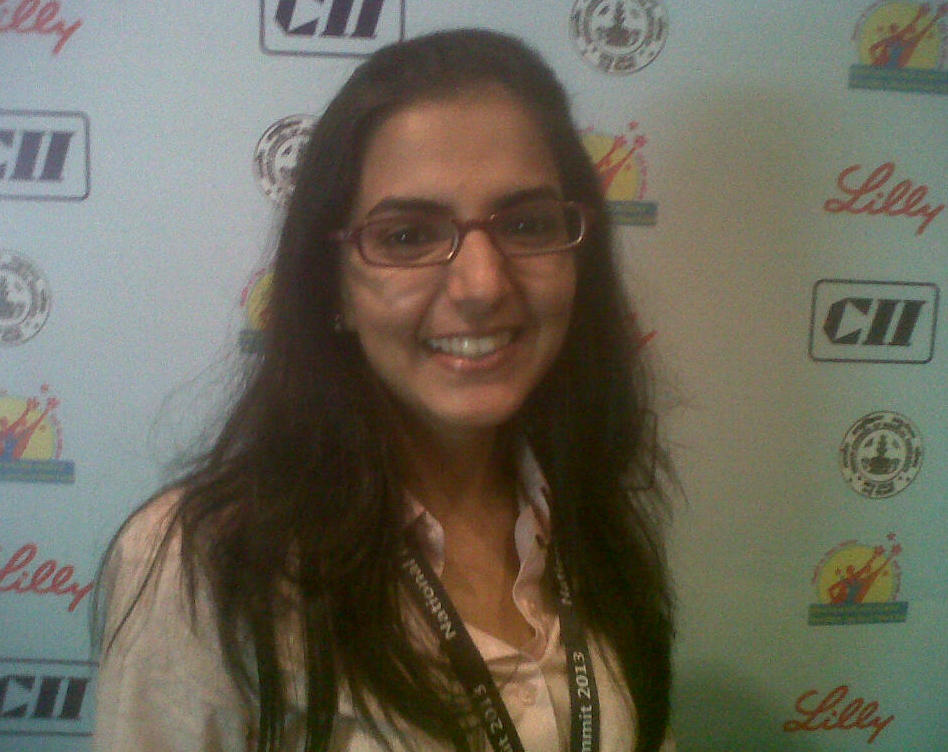National NCD Summit on “Strengthening Policies for Diabetes care” was organized by the Confederation of India (CII) in partnership with Eli Lilly and supported by the Ministry of health and family welfare and the Indian Council of research. With the increasing burden of Non Communicable Diseases (NCD), the Summit was a noble effort towards the greater objective of making India better prepared to combat the rising burden of diabetes.

The two day event, held on 7th and 8th June 2013 at Hotel Taj Palace, New Delhi, saw the presence of the Ministers and the Who’s Who of the health care industry. Given the list of aristocratic faculty, the attendance was strictly by invitation only. The summit was attended by over 400 people of the healthcare industry from all across India and the Globe.
GramVaani was invited as special guests; VP Business Development and the Social Media marketing manager represented GramVaani at the event.
The Summit was directed towards raising attention to the health care delivery, influencing the policy advocacy and preparing the stakeholders to rise up to the challenges of the NCDs (Non communicable diseases) facing the country.

The programmes and discussions were centered on three key objectives:
- Sensitization and capacity building of all key the stakeholders on policies and practices around NCDs
- Learning and sharing of global and national best practices to shape up and strengthen the ongoing initiatives in India
- Identifying and promoting Public private partnerships (PPP) for better implementation of the practices on the ground
Various sessions were conducted to deliberate on aspects related to NCDs and their cure with a focus on diabetes. The speakers addressed several topics like Causes responsible for diabetes, Current global and national practices, preventing and managing diabetes, training and development of human capital and role of technology in tackling NCDs.
The Summit identified the emergence of technology as means to facilitate effective management of the NCD programs. It emphasized the role of a robust management information system for the success of the NCD programs.
Additional Secretary, Ministry of Human Resource Development discussed how the whooping presence of mobile phones in the poorest of areas with no media or internet connectivity can be leveraged to impart proper health facilities to the masses.
Senior Vice president of Project Hope gave a presentation on how through technology they are running a successful training and development program for the health care functionaries all over the world.
Associate professor of College of pharmacy, PURDUE University mentioned the vast gap between the health care facilities and the outreach to patients and observed technology as the ‘Glue’ to stick together the medical facilities and the beneficiaries.
The Joint secretary NRHM and State nodal officers from West Bengal, Kerala, Chhattisgarh and Haryana moderated a panel discussion on the implementation of NCD programs in the pilot districts. They enumerated the various barriers to the screening and treatment of NCDs and shed light on the innovative approaches to tackle them. Based on their experience of working on the ground to implement the programs, they brought to notice the various challenges posed in managing the NCD interventions:
- Lack of adequate centers and means for procuring and dispersing the medical drugs and equipments on time
- No means to monitor the supply of the drugs and equipments
- Lack of qualified medical professionals for health care centers
- Limited Reach- How to dispense the diagnosis and treatment to the rural population
- Lack of accountability and monitoring of the medical staff- How to ensure that proper care and facilities are reaching the masses
- Lack of awareness- How to create awareness amongst the population where the majority is illiterate
- Lack of training and uniform education material- How to ensure that the all the medical functionaries are given proper, correct and uniform training.
The panel of officers reflected on the use of mobile phones as an effective resolution to these challenges as 80% of the population in India lives in rural areas with low income levels, widespread illiteracy, no internet and no media penetration. The Joint Secretary referred to the growing use of mobile phones as the definitive medium to bring about a revolution in the way health care industry functions. The possibility of various automated processes like Mobile- health, Mobile- survey, Mobile- learning, Mobile- tracking etc was considered.
The vast of ambit of mobile based solutions offers to bridge the gaps in the health care operations myriad ways. Interactive Voice Response Systems (IVRS) on mobile phones provides a host of services to reach a millions while breaking the barrier of illiteracy and digital divide. It automates processes for the purpose of Tracking and monitoring the supply of medical drugs and equipment
- Providing mobile learning and training to health functionaries
- Monitoring medical staff
- Raising health awareness amongst people
- Getting customer feedbacks, and,
- Conducting health surveys
Gram Vaani provides “Last mile connectivity” with the Bottom of the pyramid (BOPs) through its mobile based technology platform serving the low income population who has no access to any forms of communication. It caters to the technology needs of the health care, social sectors and corporate organizations through its automated suite of products vAutomate. vAutomate renders various services like vHealth, vSurvey, vlearn, vAnswer, vAct, vInform, vTrain, vHelp, and many more, to reach the under served markets.


